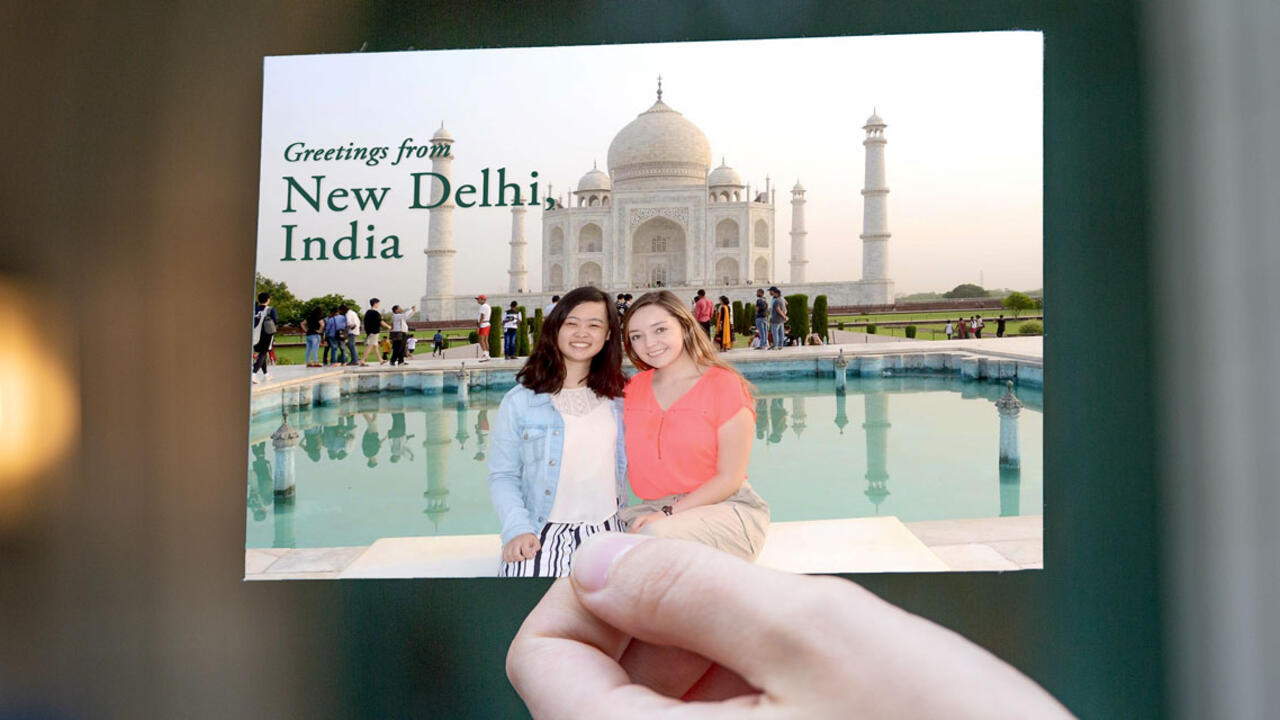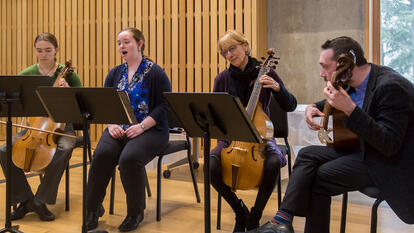Dear Wellesley: Daniela Limbania ’21 and Jennifer Duan ’21 write from New Delhi

This week’s Dear Wellesley postcard comes from Daniela Limbania ’21 and Jennifer Duan ’21, who are in New Delhi working at Operation ASHA, an NGO that provides tuberculosis treatment to individuals in disadvantaged areas. They found their internship through the Global Citizenship program of Wellesley Career Education. Check out the Wellesley College Instagram account to follow along on their journey.
सुप्रभात (Suprabhaat) Wellesley!
Suprabhaat is “good morning” in Hindi, and that is how we greet our coworkers at Operation ASHA’s office every day! We are Jennifer and Daniela, writing from Operation ASHA’s main office in New Delhi, a place full of history and interesting cultural landmarks that we’ve had the opportunity to explore.
On our first weekend, we embarked on an adventure to Humayun’s Tomb. We were awed by its architecture and beauty of the gardens. Despite being overwhelmed by the heat, we managed to enjoy our trip and even took some pictures with friendly local children! Every weekend, Delhi fills us with unforgettable and soul-stirring experiences. One of the most touching was visiting a worship temple called the Gurudwara Bangla Sahib, where families congregate to pray and cleanse in holy water inside the temple. We also visited the Taj Mahal in Agra! We arrived by sunrise when the lighting was breathtaking, making us feel at ease. The love story behind this building, a mausoleum built by an emperor in memory of his favorite wife, and the idea of keeping lifelong promises deeply inspired us.
On weekdays, we work at Operation ASHA, an NGO that strives to deliver affordable and high-quality tuberculosis (TB) treatment to underserved communities in India and Cambodia. We spend our time researching TB treatment and the technology used, understanding how NGOs operate, and increasing the impact of Operation ASHA.
Our favorite experience has definitely been visiting a directly observed treatment center. There, we saw how community health workers (CHWs) provide medication to patients. The CHWs also took us through the community, actively seeking people infected with TB and checking on current patients at their homes. More than simply distributing medication for this disease, we’ve seen Operation ASHA striving for compassion and caring deeply about the well-being of every single patient, including by using biometric technology to efficiently keep track of their dosages. These efforts translate into improved patient adherence to TB treatment, saving the lives of many people who would not have access to any health care otherwise or could develop multi-drug resistant TB.
Our hearts have been filled with unforgettable memories of our days here and appreciation for India. Spending two months in Delhi and directly seeing the impact of this NGO’s work has made us grow as students and as individuals.
Warmly,
Jennifer and Daniela



